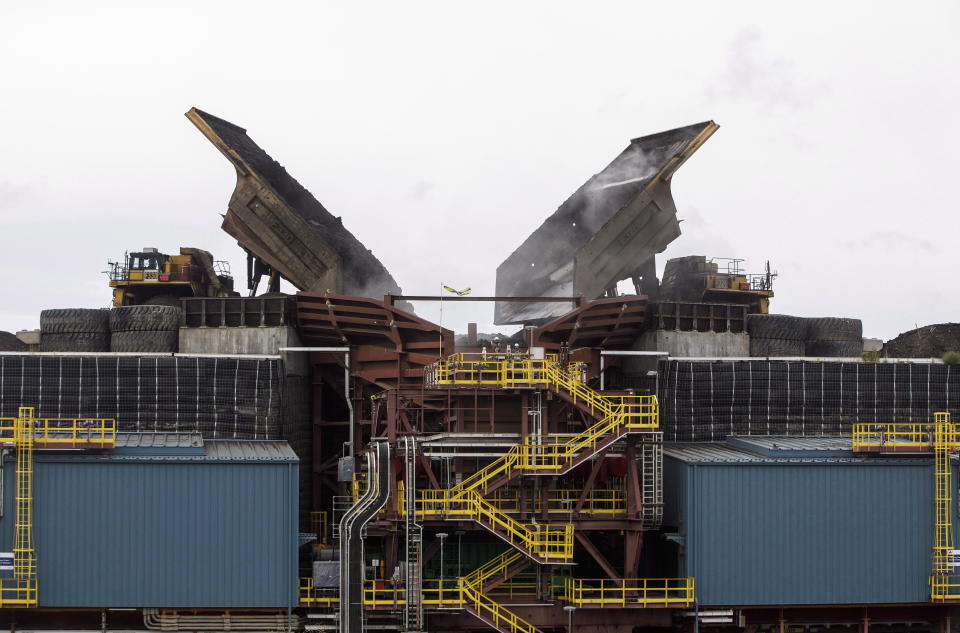‘I don’t think I would have done it’: Teck CEO reflects on journey into the oil sands

In November of 2005, Teck Resources (TECK-B.TO)(TECK), then Teck Cominco, finalized an agreement to acquire a 15 per cent stake in the developing Fort Hills oil sands mine.
In one of his first letters to shareholders in 2006, newly-minted chief executive Don Lindsay touted the Vancouver-based company’s $850 million initial investment in Fort Hills as adding a long-life, high-margin business to Teck’s copper, zinc and coal operations.
Teck had what other members of the ownership consortium lacked: experience in mining. But in the years to follow, the mega-project, which is larger than the city of Vancouver, would fall victim to cost overruns and construction delays, before being shelved in 2008 at the onset of the global financial crisis.
Fort Hills produced its first oil in January 2018. Oil sands investment fell 45 per cent between 2014 and 2017, according to data from IHS Markit, thanks in large part to a major plunge in crude prices.
“It's unlikely there will be projects of this type of scale again,” said then-Suncor CEO Steve Williams at the grand opening of the site, which includes the spot where Alberta’s first oil and gas extraction plant was built in the 1920s.
Today, the 194,000 barrel-per-day Fort Hills project is partly owned by (SU.TO)(SU) and Total Canada (TOT), 54.1 and 24.6 per cent, respectively. Teck announced a $474 million writedown on its 21.3 per cent stake on Tuesday, a product of the commodity price crash brought on by the COVID-19 pandemic and Saudi-Russian supply aggression.
At Teck’s annual general meeting on Tuesday, Lindsay was asked about the billions in charges the miner has racked up as a result of its expansion into Canada’s oil sands.
“If I had known back in 2006 that the world would be like this in 2020, I don’t think I would have done it,” he said over the phone. “We can’t all go back in time and redo it. So we have to then make decisions in today’s situation.”
Lindsay said Fort Hills has been a “tremendous operating and engineering success.” He praised Suncor for bringing it online, noting that 80 per cent of projects of this scope never hit their designed capacity. He said the last month Fort Hills was running at full clip was December 2018.
“Of course, Alberta ended up shutting in oil given the lack of pipeline capacity. And so that has had a big effect on the operation,” Lindsay explained. “The world has changed quite significantly from when we went into the business.”
In response to plunging oil prices, the trio of owners announced in March that Fort Hills would reduce production by paring back to one train from three.
Weeks prior, in what was seen as a major blow to Canada’s energy sector, Teck pulled the plug on its proposal for the $20-billion Frontier oil sands project. The company cited Ottawa’s lack of framework to reconcile pipelines and resource development with its climate change priorities, and announced a $910-million impairment charge.
With those headwinds still firmly in place, and new strains of historic proportions roiling global energy markets, Teck’s taste for the Canadian oil business is growing more and more uncertain.
“If I go back in time to when Teck first went into the oil sands business, at that time we had quite a number of reasons why we thought it was appealing,” Lindsay said, referencing the then-prevailing theory of “peak oil,” barrels trading above US$100, and the emergence of large Calgary-based energy firms.
“Our position was that we would wait out for a couple of years to see the pipelines get built, and the differentials stabilize at lower levels, and see de-bottlenecking occur. It may be that that’s not the right approach. So the board is reviewing the situation, and we are in discussions with Suncor and Total as to what the operating profile should be going forward,” he added.
“It’s going to be a very tough year ahead.”
Jeff Lagerquist is a senior reporter at Yahoo Finance Canada. Follow him on Twitter @jefflagerquist.
Download the Yahoo Finance app, available for Apple and Android.

 Yahoo Finance
Yahoo Finance 
